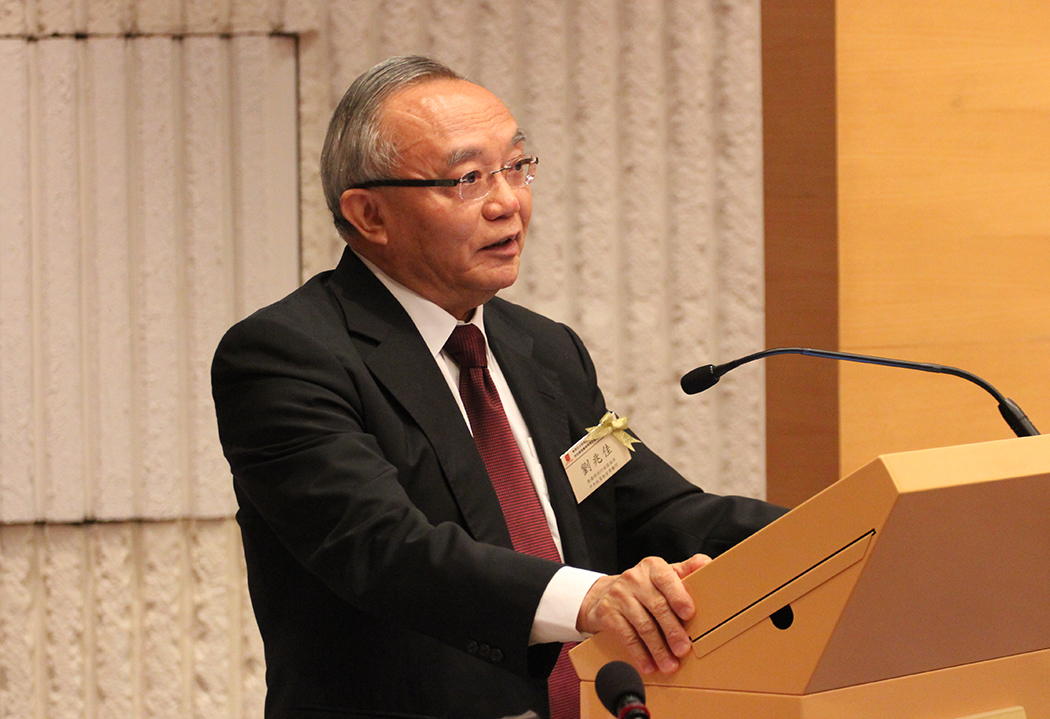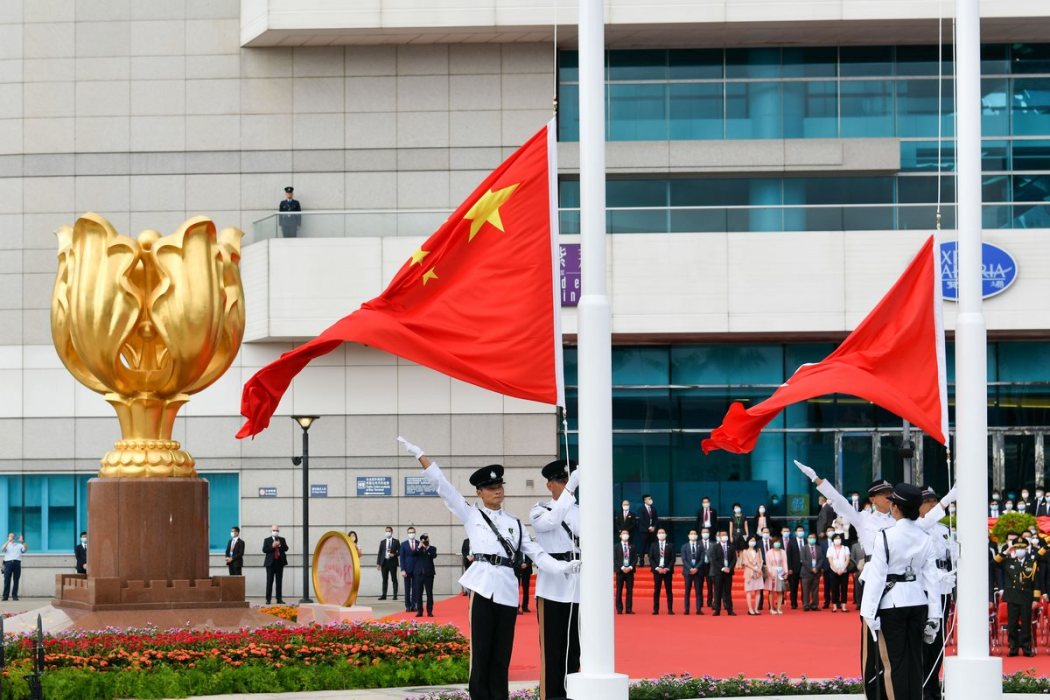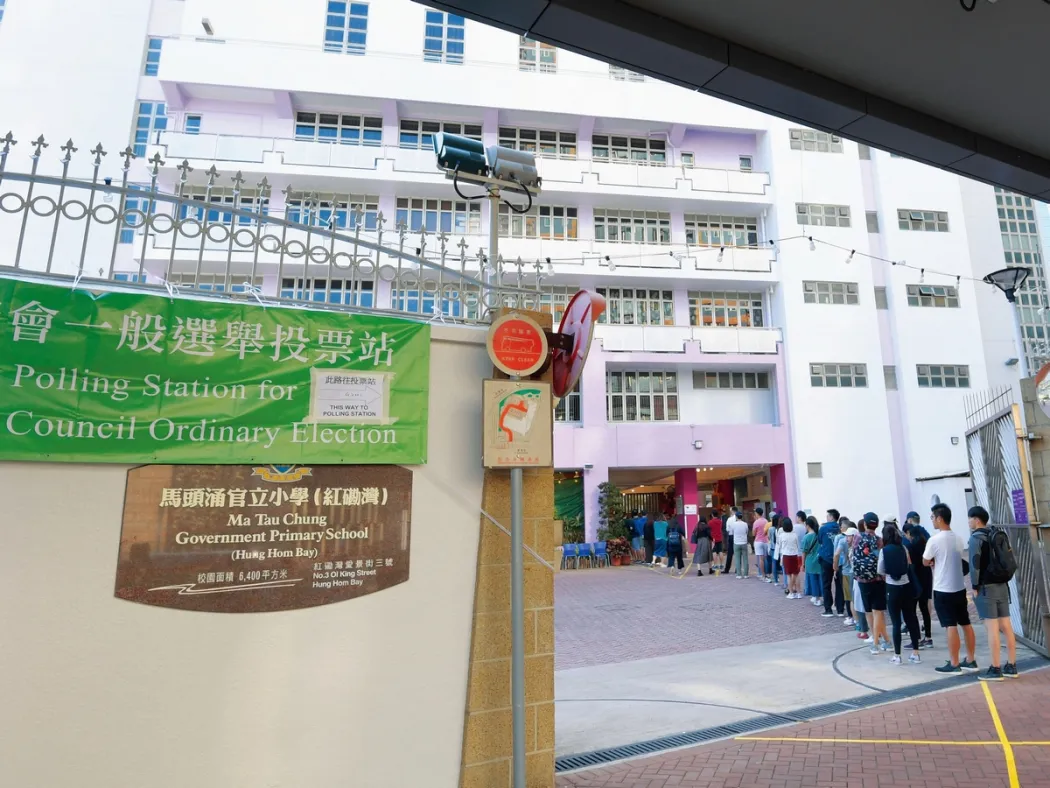Leading Beijing loyalists have been calling for reforms to Hong Kong’s electoral system across state-run and pro-Beijing media, while local media sources have said that China is mulling changes to the city’s electoral maps, seats and voting system.
Their comments came ahead of China’s annual Two Sessions on March 5, where members of the Chinese People’s Political Consultative Conference and the National People’s Conference will meet and discuss major issues on the national agenda.

“Hong Kong’s electoral system is not well established and has several loopholes,” Lau Siu-kai, vice-president of the semi-official Chinese Association of Hong Kong and Macau Studies wrote in an article for pro-Beijing media Ta Kung Pao on Wednesday, echoing Beijing official Xia Baolong’s recent statement on ensuring “patriots rule Hong Kong.”
“Internal and external enemy forces” in Hong Kong used elections to threaten national security, Lau claimed.
During elections, these forces “continuously challenged the countries’ sovereignty over Hong Kong” and “overtly challenged the central powers and the authority of the Basic Law.” They also harmed Hong Kong’s rule of law by rejecting the applicability of China’s Constitution in Hong Kong, according to Lau.
“The core of a well-established system is to ensure that those elected are all patriots,” he wrote. “To that end, [one] must prevent those who are not amongst the loyal opposition to run and win in elections.”

In an interview with pro-Beijing outlet Orange News on Monday, Lau also said “patriots” must support China’s constitution, which included supporting the leadership of the Chinese Communist Party, even though one “may not accept socialism.”
Another vice-president of the Chinese Association of Hong Kong and Macau Studies, He Junzhi, echoed Lau’s views on the need to close election “loopholes” in an interview with state-run Xinhua on Saturday. He cited, as an example, the democrats’ 2020 primary election as “an act that severely damaged fairness in the election.”
In an effort to secure more seats for the pro-democracy camp in the legislature, over 600,000 Hongkongers cast their ballot in the democratic camp primaries election last July, in order to generate a reference to select candidates for the now-postponed legislative race.

Some current elected positions were not sufficiently representative, He said, leading to the voices of “extreme opposition forces” being amplified, while others were drowned out, misleading the world into thinking that they represented Hong Kong.
On the same day, Han Dayuan, a member of the Hong Kong Basic Law Committee under the National People’s Congress Standing Committee (NPCSC), told state-run People’s Daily: “Electoral security is an important foundation in protecting national security.” And therefore, “elections… must ensure patriots are elected into governance, must ensure the HKSAR regime’s security, to prevent significant risks to national security,” Han said.
Due to short time until this year’s legislative race and next year’s chief executive’s elections, upcoming reforms would be led by the central government with cooperation from the Hong Kong government, Lau wrote.

At the same Monday event where Xia spoke, Lau said in his address that the “Five-Step Process” – stipulated by the city’s mini constitution for electoral reform – may be reduced to “One Step”. It would entail changes to the electoral system potentially decided by the NPCSC alone, instead of requiring procedures such as having a bill amendment endorsed by two-thirds of the members of the legislature.
Redrawing election districts
Citing unnamed sources, newspapers SCMP and Ming Pao both reported that Beijing may consider breaking up the current five geographical constituencies in the Legislative Council elections. They, instead, could mirror the 18 District Council election constituencies.
The proposal also included a “One Vote, Two seats” system, whereby each voter would have one vote to elect two representatives in each constituency, SCMP reported. Five popularly elected seats in the District Council (second) constituency could also be scrapped.
Support HKFP | Policies & Ethics | Error/typo? | Contact Us | Newsletter | Transparency & Annual Report | Apps
Help safeguard press freedom & keep HKFP free for all readers by supporting our team

LATEST FROM HKFP
HKFP has an impartial stance, transparent funding, and balanced coverage guided by an Ethics Code and Corrections Policy.
Support press freedom & help us surpass 1,000 monthly Patrons: 100% independent, governed by an ethics code & not-for-profit.










